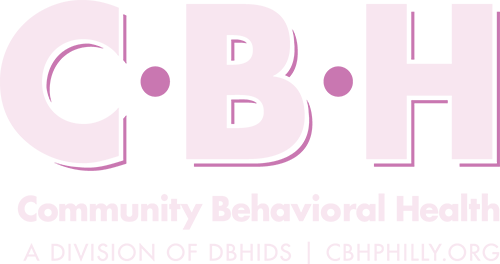Alcohol Use Disorder and Medication-Assisted Treatment
Problems with alcohol use are very common. About one in three people in the US will experience an alcohol use disorder in their lifetime. Many more will have friends or family members who struggle with alcohol misuse.
Signs and symptoms of AUD can include:
- Drinking in higher amounts, or more often
- Wanting to cut down use, or guilt about drinking
- Difficulty cutting down on alcohol use
- Alcohol cravings
- Alcohol use leading to problems in your personal or professional life
- Alcohol use leading to dangerous situations
- Tolerance (requiring higher amounts of alcohol to feel effects)
- Withdrawal symptoms (feeling ill, shaking, confusion, etc.) when alcohol use is stopped
Unfortunately, AUD causes harm to individuals and society, such as:
- Injury and loss of life
- Motor vehicle accidents
- Mental health conditions, such as depression and anxiety
- Inter-personal violence
- Medical problems, including liver disease and harm to the brain
- Fetal Alcohol Spectrum Disorders (FASDs)
- Poor school and job performance
Effective treatment, including medication, is available but may not always be used. CBH and our network of providers in Philadelphia are committed to wellness – we want everyone to know how to get help. Treatment can be provided in residential (inpatient) and community-based (outpatient) settings, through group and individual therapy, and with Medication Assisted Treatment (MAT). Talking to a doctor or care provider about alcohol use and medication can be very helpful. Currently, there are three FDA-approved medications for AUD, which include:
- Naltrexone (Vivitrol)
- Acamprosate (Campral)
- Disulfiram (Antabuse)
CBH Network Best Practices Guide
CBH is committed to ensuring access to quality substance use treatment for all Philadelphians, but research shows that only a small proportion of those diagnosed with AUD are engaged in treatment services. The combination of effective behavioral therapy, availability of appropriate medication, and coordination of care represents the standard of care for AUD and other addictive disorders.
Please consult CBH’s AUD Best Practices Guide for more information.
Accessing Treatment
Contact CBH Member Services
Call 1-888-545-2600 24 hours a day, 7 days a week, 365 days a year for help in receiving or referring for services for a drug and/or alcohol addiction. Community Behavioral Health (CBH) is a behavioral health insurance company that pays for mental health and substance use services for everyone that is enrolled in Medicaid in Philadelphia. Other Philadelphia Insurers:
- Medicare
1-800-MEDICARE (1-800-633-4227) - Magellan Healthcare
1-800-688-1911 - Behavioral Health Special Initiative (BHSI)
215-546-1200
What to Expect
Treatment Begins with an Assessment
Before going into inpatient treatment, you will need an assessment. An assessment is an in-depth interview led by a behavioral health professional. The Pennsylvania Client Placement Criteria (PCPC) and American Society of Addiction Medicine (ASAM) are two examples of assessments that help professionals determine what kind of substance use services you may need.
Residential and Hospital Treatment
If your assessment results show you would benefit from an inpatient hospital stay (also known as residential or bed-based treatment), the behavioral health professionals you met with will contact your insurance to get approval if required and connect you with a program that will meet your needs.
Community-Based and Outpatient Treatment
Many people can and do recover from substance use disorders with the support of an outpatient treatment program. Outpatient treatment is care that you can participate in without staying in a hospital or medical facility. During outpatient treatment, you can visit a behavioral health professional to access the services and medication you may need. There are three levels of outpatient treatment:
- Outpatient Program (OP): where you can meet with your treatment provider at least one time per week
- Intensive Outpatient Program (IOP): where you can meet with your treatment provider at least three times per week
- Partial Hospitalization Program (PHP): where you meet with your treatment provider daily
Some providers offer additional support for members with both substance use and mental health needs, indicated as Mental Health Treatment (MH Tx) If you are uninsured, covered by Medicaid/CBH, or not sure of your insurance coverage, contact CBH Member Services to gain assistance with accessing publicly funded SUD treatment and services. In the event of a medical emergency, please call 911 and go to the nearest emergency room.
Where to Go for an Assessment
- Adult Crisis Response Centers (24/7/365)
- Friends Hospital
4641 Roosevelt Blvd
215-831-2600 - Einstein Medical Center
5501 Old York Rd
215-951-8300 - Pennsylvania Hospital (Hall Mercer)
245 S 8th St
215-829-5433 - Temple/Episcopal Hospital
100 E Lehigh Ave
215-707-2577
- Friends Hospital
- Pathways to Recovery (PHMC)
2301 E Allegheny Avenue
Philadelphia, PA 19134
215-731-2404
Partial Hospitalization
8:30 a.m. to 5 p.m. M–F
8:30 a.m. to 12 p.m. Sat
- Child and Adolescent Crisis Response Centers (24/7/365)
- Philadelphia Children’s Crisis Response Center
3300 Henry Ave, Falls Two Building, 3rd Fl
215-878-2600
- Philadelphia Children’s Crisis Response Center
- NET ACCESS Point Program (24/7/365)
499 North 5th Street, Suite B
Philadelphia, PA 19123
844-533-8200 or 215-408-4987
Open 24/7 - Gaudenzia Assessment Center
1306 Spring Garden Street
Philadelphia, PA 19123
267-315-6907
8 a.m. to 11 p.m. Daily
Call ahead for service options outside these hours
Or contact the Nearest CBH Substance Use Disorder Treatment Provider
Communication Services
CBH can provide an interpreter, including for American Sign Language or TTY services, if you do not speak or understand English or are deaf or hard of hearing. These services are available at no cost to you. If you need an interpreter, call CBH Member Services at 1-888-545-2600 (TTY-1-888-436-7482) and they will connect you with the interpreter service that meets your needs. For TTY services, call the Pennsylvania Relay Operator at 711.
In-Network Adult Community Programs
For the most up-to-date listing of in-network adult community programs, please visit the CBH Provider Directory.






